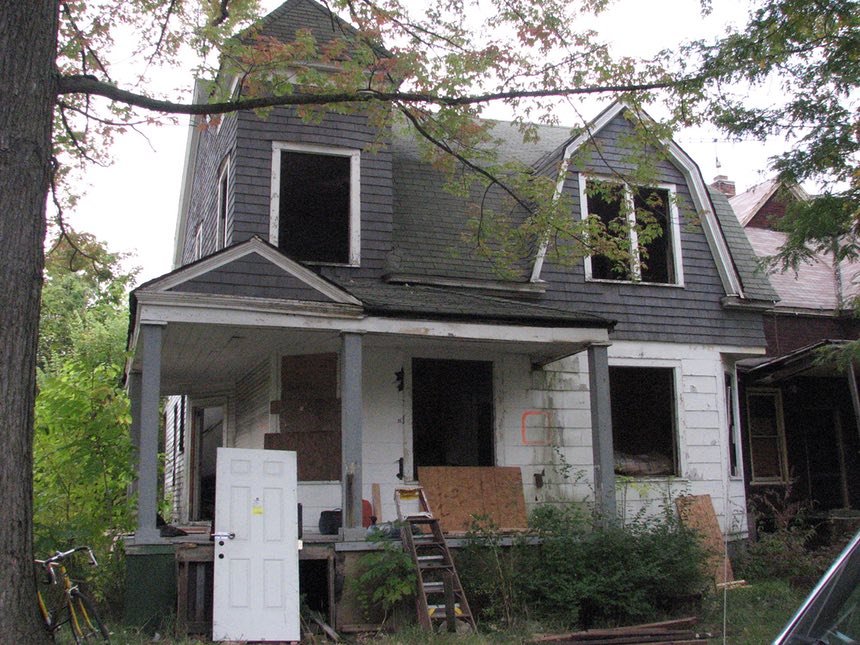You might call Drew Philp lucky.
In 2009, he purchased a foreclosed house in an auction for only $500. He was only 23 years old.
Most 23-year-olds these days can’t afford to buy a home. Many struggle just to pay rent on time. With the escalating cost of education and the expectation that you’ll go to college to get a job, many younger people are swimming in debt by their early 20’s. Buying property feels like am impossibility.
But Drew bought his home in Detroit, where $500 homes were commonplace.
When the housing bubble burst, it hit Detroit hard. Michigan’s collapsing economy and high unemployment rate meant that people could no longer afford to live there.
Residents began fleeing the city in search of jobs and wealth. Some were forced out—their homes foreclosed upon because they couldn’t pay. They became homeless. The value of property plummeted, and homes sat empty and uncared for, making it possible for people like Drew to come in and rebuild for an unbelievably low price.
[rsnippet id=”4″ name=”DFP/34009881/Article_1″]
Drew had a lot of work to do on his new home. The structure was intact, but it was missing windows and doors. It was also missing plumbing and electricity.
The home had sat abandoned for more than ten years. The yard was overgrown and the property had nearly ten thousand pounds of garbage rotting within its boundaries. That’s almost 1,000 pounds of trash for each year it sat empty.
Drew worked on it for years. Throughout the process of rebuilding, Drew learned an unexpected and valuable lesson about community.
While people were being forced out of Detroit, many of them low-income and black, wealthier white people were moving in and actively gentrifying the community with little regard to its history or the issues plaguing the people who called the city home.
Gentrification began to threaten people that Drew met and became friends with during his time in Detroit.
[rsnippet id=”5″ name=”DFP/34009881/Article_2″]
One day Drew received a tip that a neighbor’s house was going to be auctioned off. The house belonged to an elderly couple—the man was suffering from dementia and the woman had no idea the house was going to be sold.
The massive number of foreclosures that Detroit was witnessing meant that people who had spent their entire lives in the city were being forced out, and their homes were being sold for pennies to the highest bidder while they were still living in them.
Drew knew the couple to be good neighbors, but more importantly, he knew the value of keeping Detroit residents who had spent their lives there, and who couldn’t afford to move, in their own homes.
Drew and another neighbor decided to bid on the house and save it for the couple. After an anonymous bidder drove the price up several times, he successfully bought the home for $2300 dollars and put it back in the couple’s name.
[rsnippet id=”6″ name=”DFP/34009881/Article_3″]
When the elderly woman learned that she might lose her home, she was grateful to Drew for trying to win it back. When he successfully won the bidding war, she promised to pay him back, and she did slowly through small increments of change.
This meant the world to her, and to her community, where so many people had to flee or were forced into homelessness as their homes were bought and sold.
Drew details his experiences in his book, “A $500 House in Detroit: Rebuilding an Abandoned Home and an American City,” which was just released this month.
Have you ever done something like this for your neighbors? Have you witnessed people coming together to do amazing things for their community? Like us on Facebook and let us know your thoughts!


